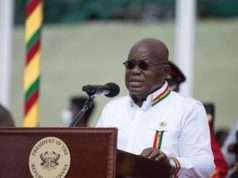Former Director-General of the National Council for Curriculum and Assessment (NaCCA) Dr. Prince Hamid Armah has called for a review of legislation that will empower the Council to sanction erring publishers in the country.
According to him, giving NaCCA more teeth to bite will halt the perennial scandals where publishers are condemned for bringing out unwholesome contents.
Dr Armah who is currently the Member of Parliament for Kwesimintsim in the Western region, urged government and Parliament to revise the Education Act 2008, ACT 778 to address the recent challenges recorded in the education sector.
“Parliament might have to legislate and give that enforcement powers to NaCCA to be able to sanction publishers for violating specific provisions on the Act that empowers them to do the approval,” he stated.
Dr. Armah made the call during an interview in Parliament in response to the ongoing fracas over two publications by Badu Nkansah whose contents denigrate some ethnic groups in Ghana.
The MP asserted that the publishers are very powerful and could bully NaCCA, especially where the mandate of the institution does not go beyond advisory and therefore powerless to enforce the law in case of regulatory violations.
He cited the McMillan saga as an example when the publishers took on the Kufuor government for the printing of some textbooks for Ghanaian schools.
The solution, he said, is for Parliament to pass a Legislative Instrument (L.I.) to enhance the capacity and authority of NaCCA to be able to enforce the laws and sanction publishers for violation in terms of published materials.
He stated that together with colleagues on the Education Committee, he will pursue the agenda to give the institution punitive powers on publishers.
Dr Armah described as unfortunate the political twist being giving to publication and the insinuation there is a deliberate attempt to institute tribal bigotry in the country.
He noted that as a country Ghana has ethnic groups with diverse cultural backgrounds who have lived together in peace and tranquillity for so long and have indeed inter-married.
“So any attempt by a group of persons to publish materials that seek to undermine or violate the cultural sensibility of our people should be condemned in no uncertain terms.
“I, therefore, join hands with others who have condemned this material and I add that it should not be tolerated”, he added.
Dr. Armah noted the NaCCA, by law, deals with publications of books and indicated that the institution is mandated to approve these materials and instruction resources including textbooks and e-books for schools.
The institution, he said, has a guideline for publishers to submit materials they intend to publish for review but stressed it cannot stop publishers from publishing and selling books.
According to him, NaCCA rigorously and meticulously assesses submitted materials and then makes recommendations to the Ministry of Education and stressed that the controversial books may not have gone through the processes.
He indicated that revision of the books before publication is very important especially when these are materials intended for children and therefore the content must meet certain benchmarks.
He, however, argued that the job of NaCCA is more of advisory because it has no power to sanction or surcharge publishers who commit publication offences.
“NaCCA does not have the power to enforce its recommendations and cannot also go round arresting publishers for publications that do not meet the standard,” he added.









































